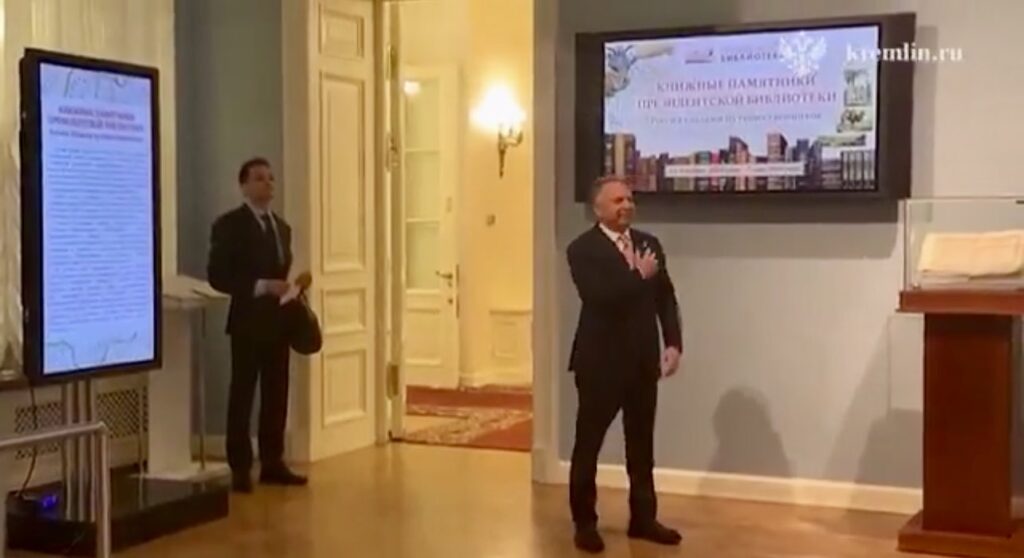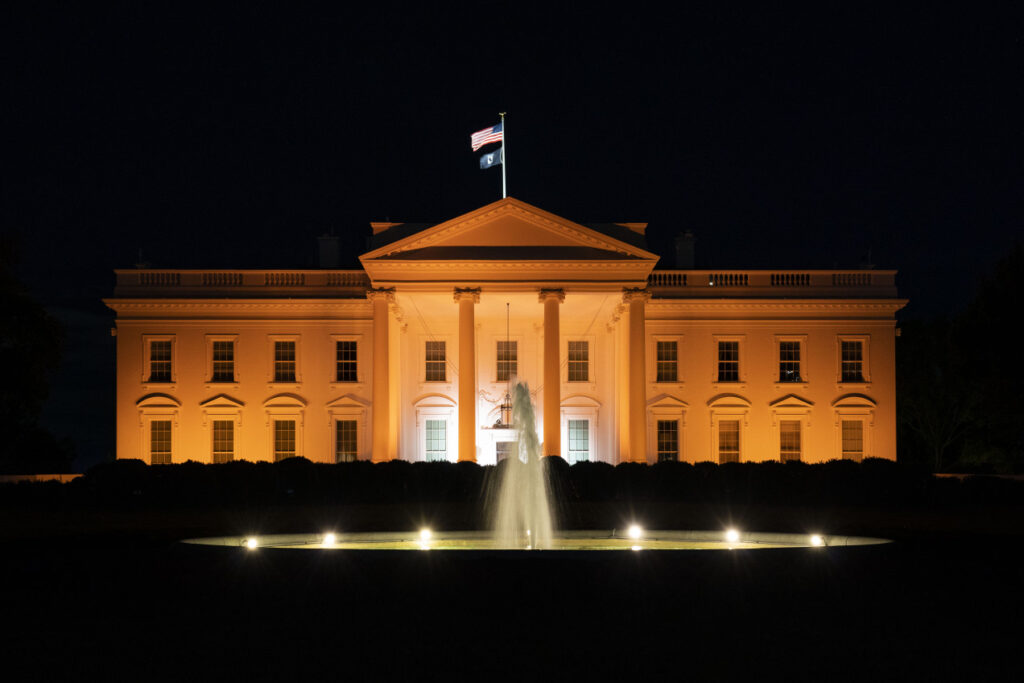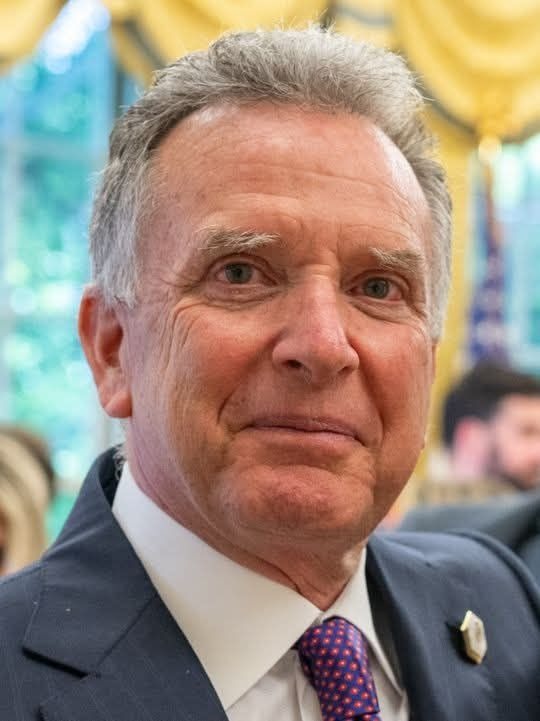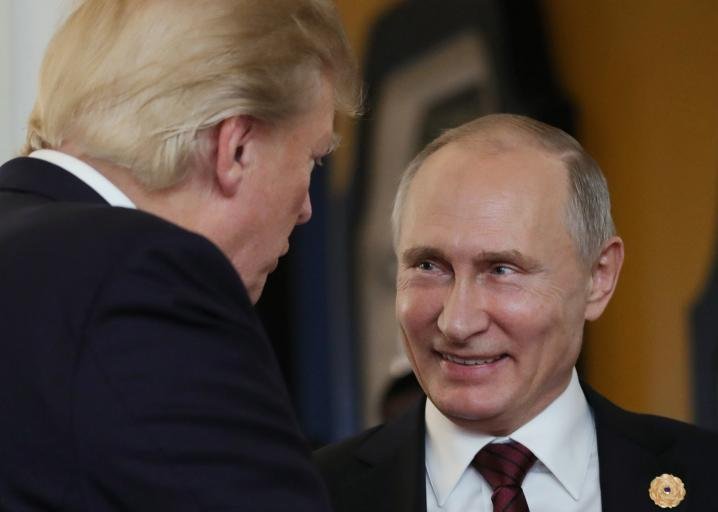Steve Witkoff’s tenure as Trump’s special envoy exemplifies a perilous fusion of inexperience, personal loyalties, and ideological bias in American diplomacy. His background as a dealmaking businessman and Trump confidant brought him to the negotiation table, but it also appears to have left him vulnerable to Russian influence and blind to the strategic complexities of the Ukraine war. From echoing Putin’s propaganda to mingling with sanctioned oligarchs, Witkoff has given plenty of ammunition to those who argue he is inclined to cooperate with Kremlin interests more than to stand up for Ukraine’s sovereignty. This inclination not only casts doubt on his ability to broker a just and lasting peace, but also risks turning Trump’s much-vaunted peace initiative into a concessionary gambit that favors Moscow.
In 2025, President Donald Trump appointed Steve Witkoff – a New York real estate mogul turned diplomat – as his Special Envoy for Peace Missions, tasking him with brokering an end to Russia’s war in Ukraine. Witkoff’s appointment was touted as an unconventional, dealmaker’s approach to diplomacy. However, critics argue that Witkoff is unlikely to help achieve a just peace in Ukraine and may instead be inclined to cooperate with Russian interests. This commentary examines Witkoff’s background and affiliations, his connections to Russian figures, his alignment with pro-Russian narratives, and the implications of his role for Trump’s peace agenda and U.S. credibility in the region.
Steve Witkoff is not a career diplomat but a billionaire real estate developer with deep roots in Trump’s circle. A longtime friend of Donald Trump from the New York real estate scene, their relationship spans 40 years and long predates Trump’s political career. Trump’s trust in Witkoff is highly personal – “bordering on the familial” – exemplified by overlapping family business ventures (Witkoff’s son co-founded a crypto firm with Trump’s son). Politically, Witkoff has been a Republican ally; he served on Trump’s economic revival councils during the first term and reliably supports Trump’s agenda.
Witkoff’s sudden elevation to Special Envoy for Peace Missions in mid-2025 was unconventional, reflecting Trump’s preference for trusted outsiders over seasoned diplomat. Prior to this, Witkoff had no formal diplomatic experience – a fact even Trump acknowledged, noting Witkoff “had no idea about Russia” or politics at first. Nevertheless, he was quickly thrust into high-stakes negotiations, including helping broker a Middle East ceasefire and now front-channel talks with Moscow and Kyiv. This unorthodox background matters because it influences Witkoff’s approach: he views international peace efforts as business deals, focusing on pragmatic transactions rather than traditional diplomacy. As Jared Kushner (Witkoff’s partner in these endeavors) described, the Trump team’s guiding philosophy is “pragmatic realism,” prioritizing interests over democratic values. Such a mindset can sideline concerns about principles or allies in favor of striking a deal – a dynamic that is already shaping Witkoff’s conduct in the Ukraine peace mission.
A major concern is Witkoff’s personal and business ties that intersect with Russian interests. Perhaps most notably, Witkoff has partnered with Len Blavatnik, an Anglo-American billionaire born in Ukraine and raised in Russia, who made his fortune during the post-Soviet privatizations. Blavatnik is closely associated with sanctioned Russian oligarch Viktor Vekselberg and has been personally sanctioned by Ukraine for his links to the Kremlin’s network. In the 2010s, Witkoff joined Blavatnik on at least one major real estate venture in Miami Beach. While Blavatnik isn’t sanctioned by the U.S. or EU and is known as a philanthropist, he and his associates stand to benefit from renewed U.S.-Russia business ties that might emerge if sanctions pressure on Moscow eases. This presents a potential conflict of interest: Witkoff’s own business circle includes individuals who would profit from a peace deal favorable to Moscow and a normalization of relations.
Witkoff’s Russian links go beyond business elites to even shadier figures. In 2010, he wrote a letter of recommendation for Anatoly Golubchik, a known figure in the Russian-American mob, to help Golubchik move into a luxury New York condo. Witkoff vouched for him as “a friend” with integrity – even though Golubchik was later convicted of gambling, money laundering, and extortion as part of a Russian mafia organization operating from Trump Tower (the Taiwanchik-Trincher ring). Witkoff claims he regrets writing that letter, which he says he did at a friend’s request. Still, the incident underscores how Witkoff has rubbed shoulders with figures tied to Russian organized crime.
On the diplomatic front, Witkoff has cultivated direct contacts with Putin’s inner circle in ways that raise eyebrows. He reportedly established a backchannel via Kirill Dmitriev, a Russian sovereign wealth fund chief close to Putin. Dmitriev, who is under U.S. sanctions for Russia’s invasion of Ukraine, helped arrange Witkoff’s very first meeting with Vladimir Putin in February 2025. In fact, Witkoff alarmed U.S. officials by initially inviting Dmitriev to dinner at his own home in Washington, D.C., breaching normal security protocols (the meeting was hastily moved to the White House when this caused an outcry). By relying on sanctioned Russian intermediaries and informal channels, Witkoff signaled a comfort with bypassing official protocols that dovetails with Moscow’s preferences. The Kremlin has openly welcomed Witkoff’s visits – Putin’s spokesman praised them as “important, substantive and very useful” – suggesting that Russian officials see Witkoff as someone receptive to their views. Indeed, in an unusual arrangement, Witkoff met one-on-one with Putin without any U.S. diplomats or translators present, relying on Kremlin interpreters. Such closed-door meetings, without the usual State Department experts, have fueled concerns that Witkoff may be outmaneuvered or unduly influenced by Putin’s team.
Compounding worries about Witkoff’s role is his apparent ideological tilt toward Russian talking points in the Ukraine conflict. On multiple occasions, Witkoff has publicly echoed narratives that originate in the Kremlin or in Trump’s own pro-Moscow rhetoric. For example, Witkoff suggested that Russia “was provoked” into invading Ukraine in 2022 – effectively shifting blame toward NATO or Ukraine – a claim that mirrors Putin’s justification for the war. This stance is at odds with established facts (Russia launched an unprovoked full-scale invasion) and U.S. policy prior to 2025, but it aligns with Trump’s reluctance to blame Moscow. In fact, the Trump administration broadly has downplayed Russia’s culpability, to the point of even refusing to vote for U.N. resolutions labeling Russia as the aggressor. Witkoff’s comments reinforce that narrative.
Even more strikingly, Witkoff has advocated outcomes that match Moscow’s maximalist demands. In a March 21, 2025 interview with Tucker Carlson, he floated the idea of simply ceding four eastern Ukrainian regions to Russia – Luhansk, Donetsk, Zaporizhzhia, and Kherson – which Russia illegally claimed to annex in 2022. “They’re Russian-speaking,” Witkoff argued, claiming “overwhelming” local support for joining Russia based on the sham referendums that Putin staged under military occupation. This narrative – portraying Ukraine’s territories as rightfully Russian – “mirrored that of Russian officials” and shocked many in Washington. Western governments had condemned those hastily organized referendums as illegitimate and vowed never to recognize their results. Yet here was the U.S. President’s own envoy essentially taking the Kremlin’s side The Wall Street Journal even ran an op-ed titled “Steve Witkoff Takes the Kremlin’s Side,” underscoring how closely his rhetoric tracked with Putin’s line.
Witkoff’s tendency to parrot Russian narratives has been noted in other media appearances as well. After one trip to Moscow, Witkoff went on Fox News and suggested that the war was not instigated by Russia at all, and he appeared to accept Putin’s claims about annexing Ukrainian lands. In an interview with Carlson, he did not push back when Tucker Carlson drew a grotesque analogy equating NATO’s presence near Russia with Hamas on Israel’s border. Such moments convey that Witkoff is either sympathetic to Putin’s viewpoint or unwilling to challenge Russian propaganda. He has even expressed personal affinity for Putin; according to one account, Witkoff told Carlson he doesn’t view Putin as a “bad guy” and that he “likes him”. All of this signals a remarkable ideological alignment with pro-Russian and anti-Ukraine positions for someone ostensibly negotiating a peace deal. Rather than serving as a neutral intermediary, Witkoff comes off as tilted toward Moscow’s perspective, which raises doubts about whose interests he is really advancing.
President Trump has made it clear he wants a rapid peace deal in Ukraine – often boasting he could end the war “in one day” – and he tapped Witkoff as the point man to deliver results. Ironically, Witkoff’s approach may be undermining that very agenda. By embracing Russia’s terms for peace, Witkoff is pushing a plan that Ukraine and many in the West find unacceptable, thereby stalling genuine progress. Ukrainian President Volodymyr Zelenskyy has flatly rejected the notion of unilaterally ceding sovereign territory, and even Trump’s own national security team is divided over Witkoff’s ideas. In a White House meeting, when Witkoff argued for giving Russia the four regions, General Keith Kellogg, Trump’s Ukraine envoy (a more traditional hardliner), pushed back that Ukraine “would never agree” to such a capitulation. The meeting ended inconclusively, reflecting internal conflict in Trump’s administration over Ukraine policy. While Witkoff presses Trump to lean toward Moscow’s proposal, others advocate sticking by Kyiv – leaving Trump without a coherent strategy. This rift at the highest levels makes it harder for the U.S. to negotiate effectively and speak with one voice.
Witkoff’s involvement has also triggered domestic political blowback that could hamstring Trump’s agenda. His evident pro-Russia leanings have alarmed even members of Trump’s Republican Party. Some Republican lawmakers – traditionally hawkish on Russia – were so disturbed by Witkoff’s Tucker Carlson interview that they phoned National Security Adviser Mike Waltz and Secretary of State Marco Rubio to complain. One major GOP donor circulated a letter titled “Witkoff must go,” calling for Trump to fire him and let Secretary Rubio take over negotiations. Such dissent within Trump’s own camp erodes the political support needed to implement any Ukraine peace plan. At the same time, the isolationist wing of the GOP (those skeptical of aiding Ukraine) cheers Witkoff on, which ties Trump’s agenda even closer to a partisan fault line. Rather than uniting the country or allies behind a peace initiative, Witkoff has become a polarizing figure.
Internationally, Witkoff’s role may be diminishing U.S. leverage and credibility in talks. European allies and Ukrainian officials see the U.S. now making concessions to Moscow before Russia has even ceased its aggression. As Witkoff and Trump openly display a “desperation for a deal,” they have committed a “cardinal sin of diplomacy” that weakens their negotiating hand. Putin can sense Trump’s eagerness to claim a peace deal trophy, and Moscow may be stringing along negotiations to extract maximum advantage. Indeed, Western analysts suspect Putin is stalling for time and avoiding serious concessions even as he flatters Witkoff’s efforts. By meeting Putin’s demands halfway from the outset, Witkoff has reduced pressure on the Kremlin to compromise, potentially delaying a true resolution. In short, instead of accelerating peace, Witkoff’s pro-Russian bend could result in a one-sided “deal” or no durable deal at all – undermining Trump’s stated goal of quickly ending the war.
The trajectory of Witkoff’s mission carries broader implications for U.S. foreign policy and credibility, especially in Europe. Under Trump and Witkoff, Washington has pivoted from staunchly supporting Ukraine’s defense to pressing Ukraine to accept a ceasefire largely on Russia’s terms. This dramatic shift sends a signal to allies and adversaries alike. European partners are increasingly worried that the U.S. “lacks a clear plan” and might accept outcomes that undermine not just Ukraine’s sovereignty but the entire European security architecture. Allies have noticed contradictory messages from Washington and an erratic process with Witkoff in the driver’s seat. Such mixed signals reduce allied confidence in U.S. leadership at a critical moment. If America appears willing to trade away principles and Ukrainian territory for a quick political win, NATO unity could fray as frontline states like Poland or the Baltics lose trust in U.S. commitments. Already, diplomats report a sense that “there is no real plan here” from the Americans, fueling anxiety in Europe.
Furthermore, U.S. moral authority is at stake. Aligning with Russian narratives – even voting alongside Russia at the U.N. to avoid blaming Moscow for the war – damages the image of the United States as a defender of international law and democratic nations. It places Washington uncomfortably in a small camp of Russia-friendly states, estranging it from the broader coalition that opposes Putin’s aggression. Such moves could embolden not only Russia but other authoritarian regimes, who may read it as American acquiescence to forcible land grabs. The precedent of rewarding aggression with territorial gains is a dangerous one; it could weaken deterrence globally. If Ukraine’s plight is effectively swept aside in a U.S.-brokered deal, what message does that send to China regarding Taiwan, or to other nations harboring expansionist ambitions?
Witkoff’s apparent closeness with Moscow also poses a credibility problem in the negotiations themselves. Ukraine’s government cannot be expected to trust an envoy who seems sympathetic to the aggressor’s viewpoint. Indeed, Ukrainian President Zelenskyy has openly sparred with Trump – calling him out for living in a “disinformation space” after Trump labeled Zelenskyy a “dictator” – highlighting the strain in U.S.-Ukraine relations under Trump’s peace push. With Witkoff championing ideas that Ukraine calls unacceptable, Kyiv may doubt that the U.S. will guarantee its security or honor commitments. This complicates any peace implementation, since a deal imposed under duress or without trust is unlikely to hold. It also reduces U.S. influence: if Ukraine and European allies start to see the U.S. as too Russia-leaning, they may seek alternate arrangements (for instance, Europe taking more independent diplomatic or security initiatives). In essence, America’s role as an effective mediator is compromised if one side – in this case, U.S. allies – perceives the mediator to be partial to the adversary.
A peace deal that serves the Kremlin’s agenda would be a pyrrhic victory for Trump’s White House – one that might momentarily stop the fighting, but at grave cost to U.S. credibility and moral standing. It could fracture alliances, embolden aggressors, and betray the principle that international borders cannot be redrawn by force. The stakes of the Russia-Ukraine war demand a balanced and principled diplomacy. Yet, with Special Envoy Witkoff at the helm of Trump’s peace mission, the United States risks projecting not strength or fairness, but naïveté and acquiescence. Unless corrected, this approach may leave Ukraine’s fate in the hands of Moscow’s interests, undermining the very peace and security it purports to achieve.

More on this story: Analysis: Outcomes of the Witkoff Visit to Moscow






